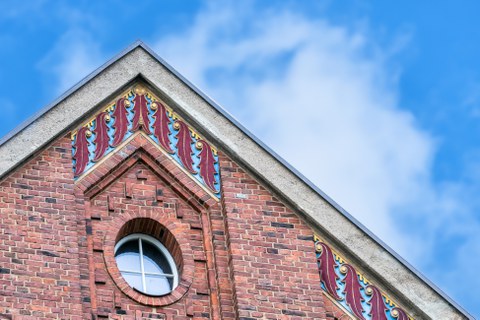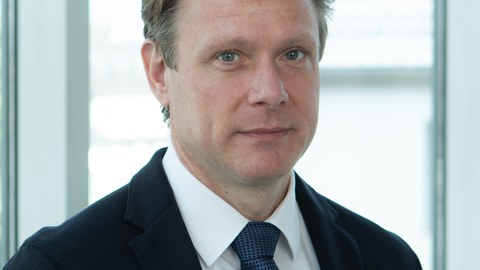Universitätsweite Antrittsvorlesung - Neuberufene im Fokus
Inhaltsverzeichnis
Die Universitätsweite Antrittsvorlesung stellt neuberufene Professor:innen mit herausragender strategischer Bedeutung für das Forschungsprofil der TUD vor.
Besuchen Sie die Veranstaltung im Fritz-Foerster-Bau 244, immer am 3. Donnerstag um 16:40 Uhr in der Vorlesungszeit. Das anschließende Get Together bietet Gelegenheit zum persönlichen Austausch.
Aktuelle Veranstaltung - Prof. Hagen B. Huttner
Professur für Neurologie
Fakultät: Medizinische Fakultät Carl Gustav Carus
CV
|
2015 |
Adolf-Wallenberg-Preis der Deutschen Schlaganfallgesellschaft und der Deutschen Gesellschaft für Neurologie |
|---|---|
| 2016 | Kongresssekretär des 89. Kongresses der Deutschen Gesellschaft für Neurologie in Mannheim |
| 2018 & 2023 | Federführender Leitlinienautor der Deutschen Gesellschaft für Neurologie ( Registernummer 030 – 105) |
| 2020 | Hans Georg Mertens Preis der Deutschen Gesellschaft für Neurologie und der Deutschen Gesellschaft für NeuroIntensiv- und Notfallmedizin |
| 1999-2002 | Promotion “MRI-based analyses of inter-individual anatomical variability of the human frontal lobe” am Max- Planck-Institut für Kognitions- und Neurowissenschaften, Leipzig (Prof. Dr. D.-Y. von Cramon) |
|---|---|
| 1995-2002 | Medizinstudium an der Universität Leipzig |
| seit 02/2025 | Direktor der Neurologischen Klinik, Universitätsklinikum Dresden |
|---|---|
| 2021-2025 | Direktor der Neurologischen Klinik, Justus-Liebig-Universität Gießen |
| 2015 & 2018 |
Leitender Oberarzt (ab 2015) und stellvertretender Klinikdirektor (2018) der Neurologischen Klinik Erlangen |
| 2014-2016 | Aufnahme in das PhD-Programm des Karolinska Instituts und Abschluss mit Doktorgrad (Ph.D.). Title of doctoral thesis: “Investigating Cell Turnover In The Healthy And Diseased Adult Human Brain” |
| 2014 | Ernennung zum außerplanmäßigen Professor |
| 2013 | Zusatzbezeichnungen Intensivmedizin & Geriatrie |
| 2011-2012 | DFG Stipendium (Hu1961/1-1) und Post-Doktorand am Karolinska Institute in Stockholm (Department of Cell and Molecular Biology, Head: Prof. Jonas Frisén) |
| 2010 | Facharzt für Neurologie und Oberarzt der Neurologischen Univ.-Klinik Erlangen |
| 2010 | Habilitation für das Fach „klinische Neurologie“ |
| 2009 | Rotation Psychiatrie an der Friedrich-Alexander-Universität Erlangen-Nürnberg (Prof. Dr. J. Kornhuber) |
| 2008 | Habilitation für „Experimentelle Neurologie“ |
| 2007-2008 | Assistenzarzt für Neurologie an der Friedrich-Alexander-Universität Erlangen-Nürnberg (Prof. Dr. S. Schwab) |
| 2006-2007 | Post-Doktorand am Biotechnologischen Forschungszentrum der TU Dresden (BIOTEC): Grundlagenforschung an neuralen Stammzellmarkern (Dr. D. Corbeil) |
| 2003-2006 | Arzt im Praktikum und Assistenzarzt an der Neurologischen Klinik der Ruprecht-Karls-Universität Heidelberg (Prof. Dr. W. Hacke) |
Details
Die Universitätsweite Antrittsvorlesung "Studying adult neurogenesis in humans: insights from 14C‐radiocarbondating and 15N‐thymidine methodology" von Prof. Huttner findet statt am:
15. Januar 2026
16:40 - 18:10 Uhr (6. DS) s.t.
FOE/244, Fritz-Foerster-Bau, Mommsenstraße 6, 01069 Dresden
Der Vortrag und die sich anschließende Diskussion sind in Englisch.
Im Anschluss bietet das Get Together Gelegenheit zum Kennenlernen.
Vergangene Veranstaltungen
Einen Rückblick auf die Veranstaltungen der letzten Jahre finden Sie auf unserer Webseite "Vergangene Veranstaltungen".
Über die Universitätsweite Antrittsvorlesung
Neuberufene Professor:innen mit herausragender Forschungsarbeit und internationaler Strahlkraft entscheiden sich für den Wechsel an die TU Dresden. Die wissenschaftlichen Schwerpunkte der neuen Kolleg:innen sind interdisziplinär anschlussfähig.
International visible Neuberufungen in strategisch relevanten Forschungsbereichen tragen entscheidend zur Entwicklung der Universität bei. Somit heißt die TU Dresden begeisterungsfähige Personen willkommen, die die Attraktivität des Dresdner Wissenschaftsstandorts weiter erhöhen und deren zahlreiche Aktivitäten die TUD und DRESDEN-concept Partner miteinander verbinden.
Die Universitätsweiten Antrittsvorlesungen werden in Absprache mit den berufenden Fakultäten und den assoziierten Einrichtungen ausgerichtet. Weitere Informationen finden Sie im Internen Webbereich (Login).



